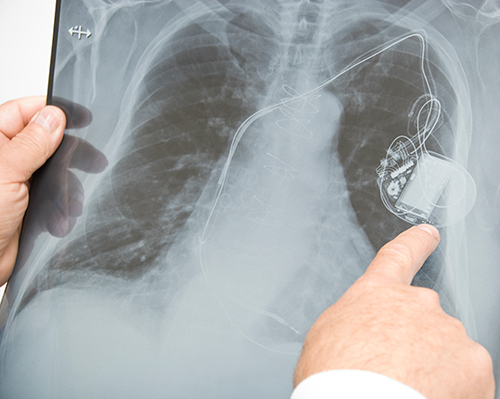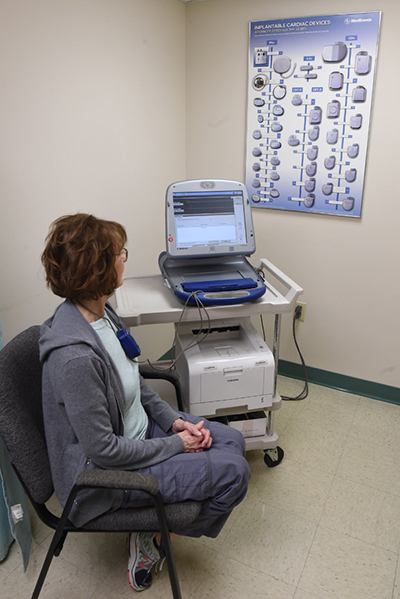The Pacemaker Department
at Cardiology Associates of Altoona
Pacemaker and Implantable Cardiac Defibrillators
The Pacemaker Department at Cardiology Associates of Altoona offers comprehensive pacemaker and implantable cardioverter defibrillator services. We provide insertion, programming, adjustment, replacement, and related services for all types of state-of-the-art heart regulation devices to help keep your heart functioning at its best capacity for optimal health. Our physicians have the extensive experience necessary to provide you with premier healthcare, as well as answers to your questions and the personalized attention that you deserve.
What is a Pacemaker and How Can it Help Keep My Heart Healthy?

A pacemaker is an implantable device that assists your heart to beat in a regular rhythm when it’s natural pace-making function becomes defective. The device consists of a small battery-operated electric generator and wire leads that stimulate your heart to beat. The pacemaker is typically inserted beneath your skin via a small incision. The leads from the generator are then connected to your heart. Small electrical impulses are programmed to maintain your heartbeat at regular intervals, similar to your heart’s biological pacemaker. Your cardiologist may recommend a pacemaker to help your body maintain a healthy blood flow if your heartbeat has become abnormally slow or irregular.
What are the Benefits of Implantable Cardioverter Defibrillators (ICDs)?

Implantable cardioverter defibrillators are used to treat arrhythmias (irregular heartbeats caused by a malfunction within the heart’s electrical system) that are life-threatening by ensuring that an arrhythmia capable of causing sudden cardiac arrest is treated immediately with a corrective electrical pulse. ICDs are small battery-powered generators that can be implanted under the skin (or the abdomen). They also contain wire electrodes that sit within the heart. Pacemakers emit low energy electrical impulses that affect conduction and can pace both the upper and lower chambers if needed. ICDs can perform this function, as well as providing the higher energy charge necessary to defibrillate the heart if the lower ventricles start to quiver instead of contract normally.
Cardiac Resynchronization Devices (CRTs) For Heart Failure
Patients with heart failure may be candidates for cardiac resynchronization therapy devices. These devices specialize in the synchronization of both the left and right ventricles which assists the heart to pump better and more reliably. CRTs with defibrillators are also available.
Electrophysiology (EP) Study
Your heart has its own electrical system with signals from the electrical system regulating your heart’s rhythm. Normally your heart beats at an even, steady pace. If there is a problem with the heart’s electrical system, the heart may beat too fast or too slow. An EP study helps your doctor locate areas within your heart that may be causing an abnormal rhythm.
If you would like to learn more about our pacemaker services, refer a patient, or would like to contact Cardiology Associates of Altoona to schedule an appointment, please call: (814) 942- 2411.

